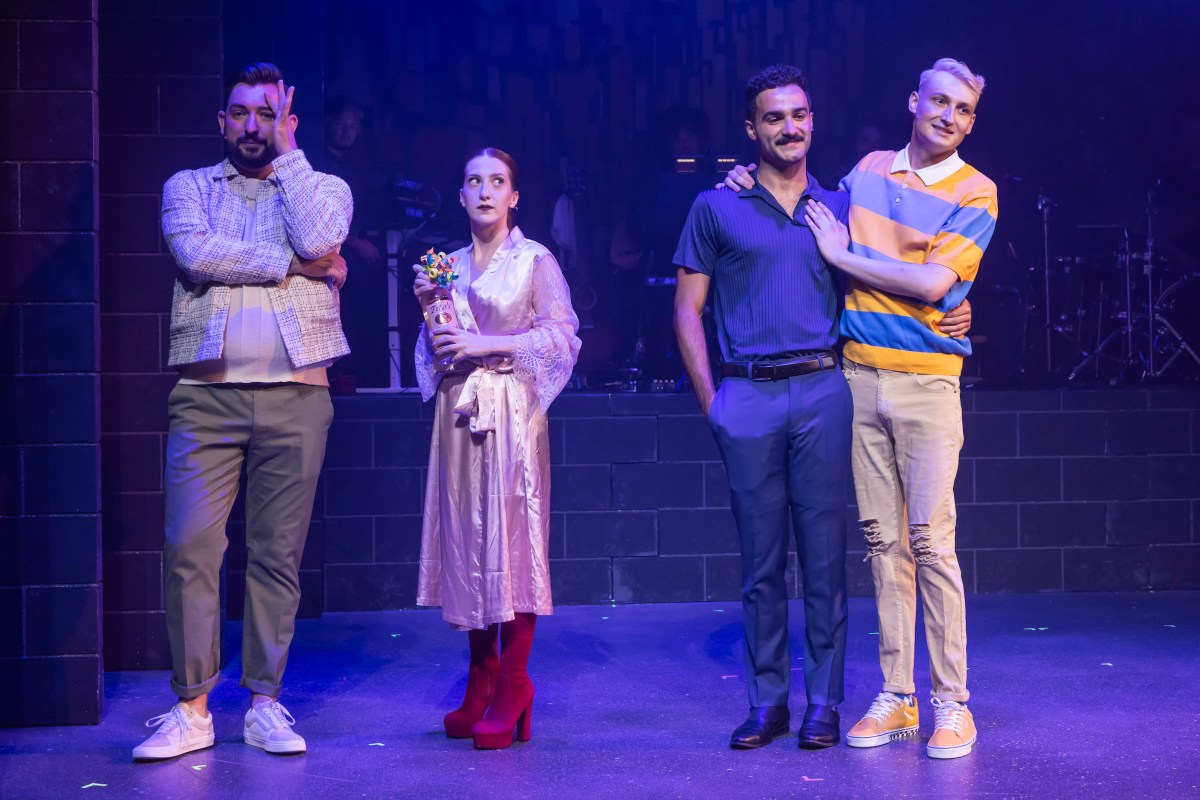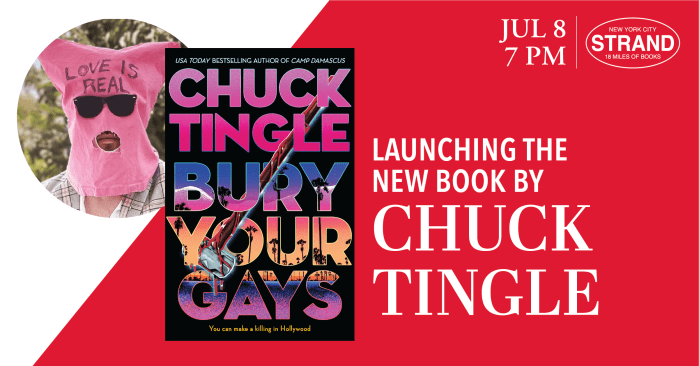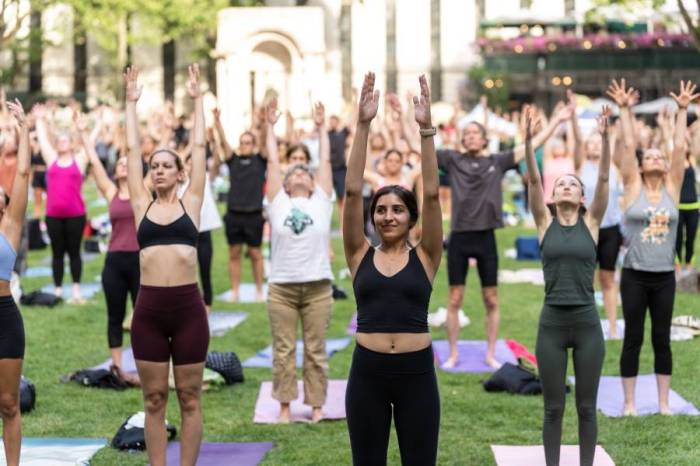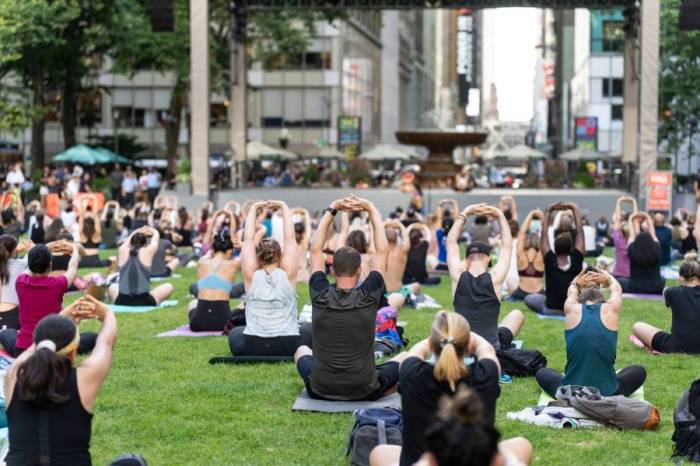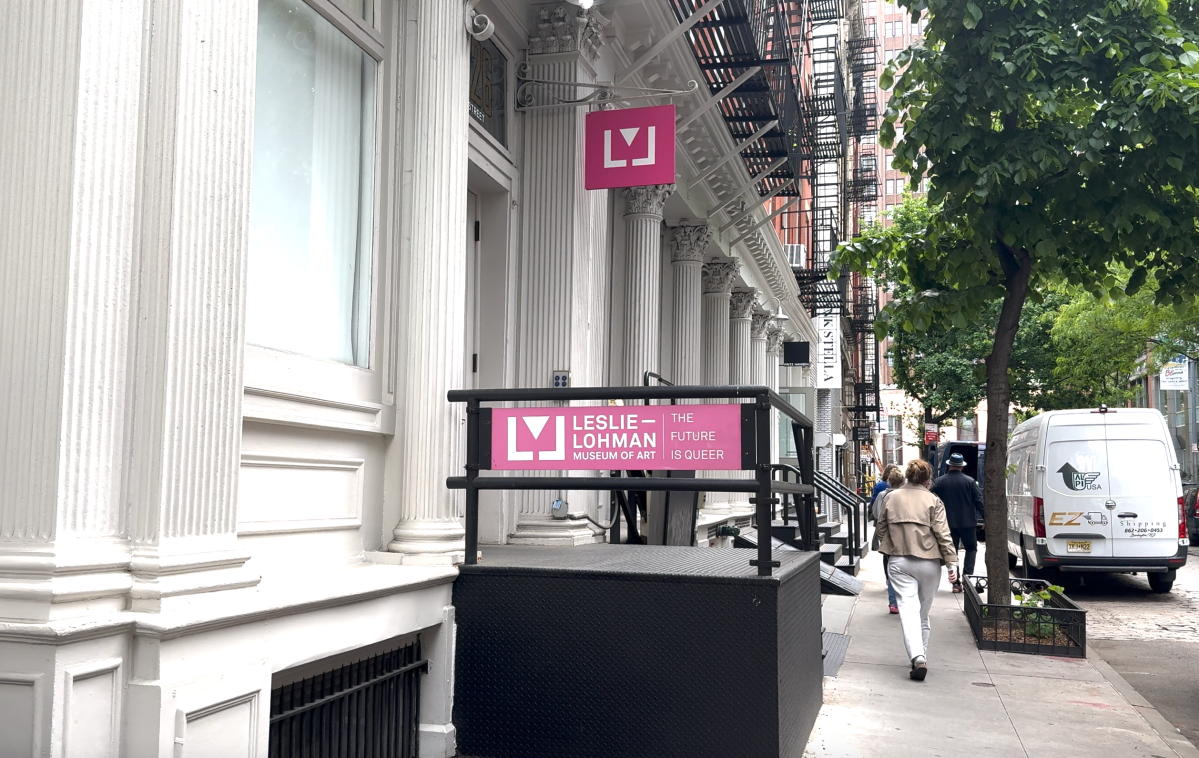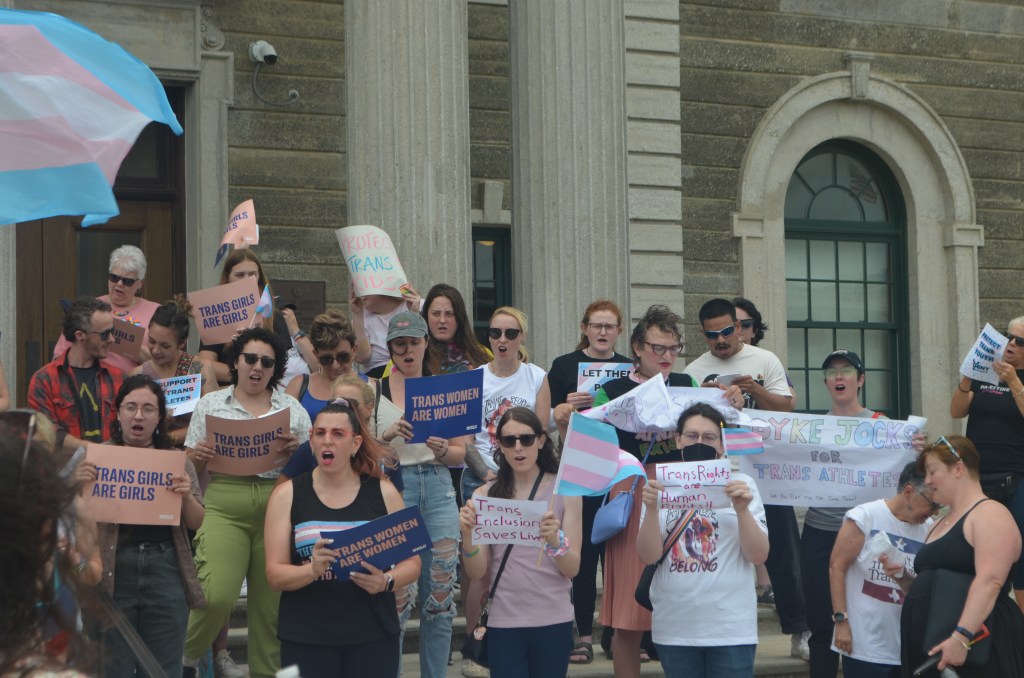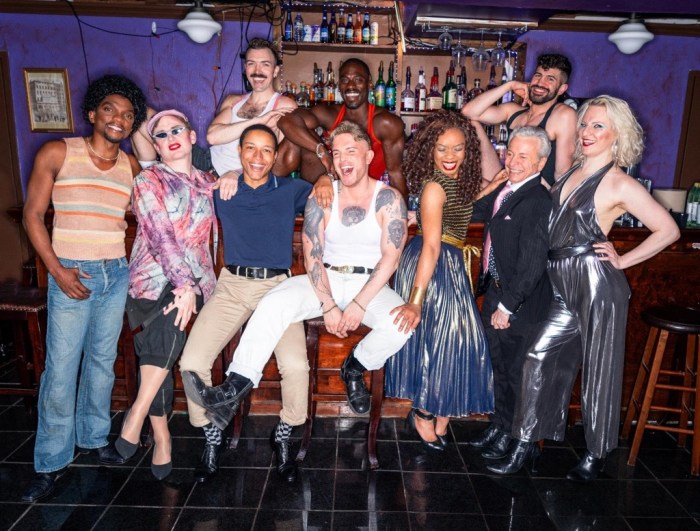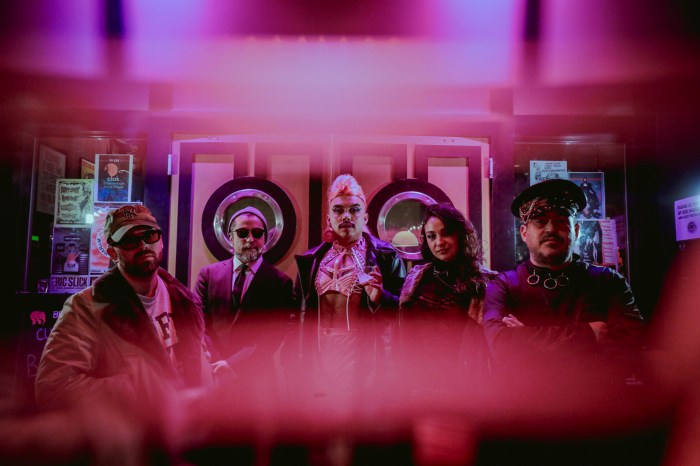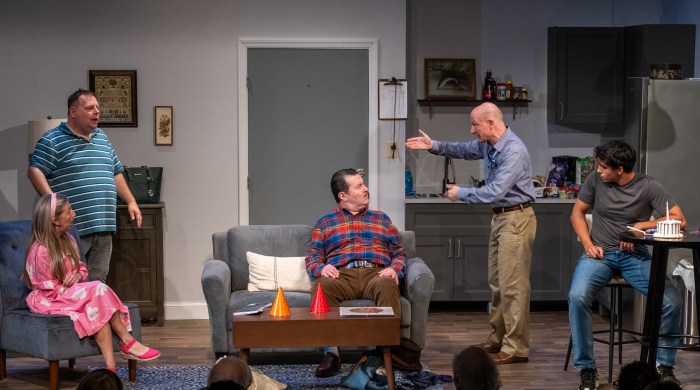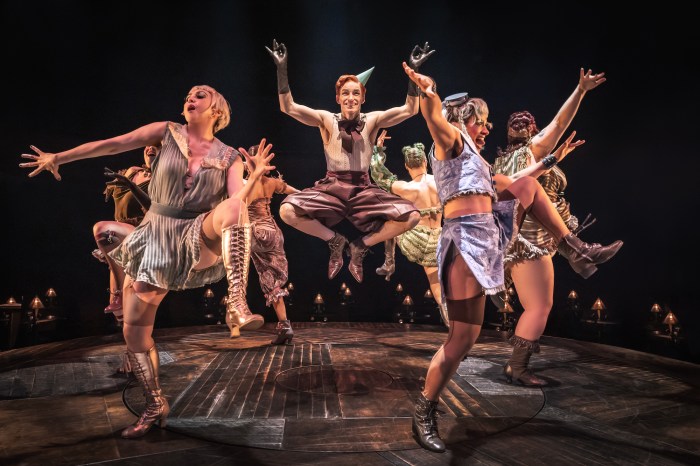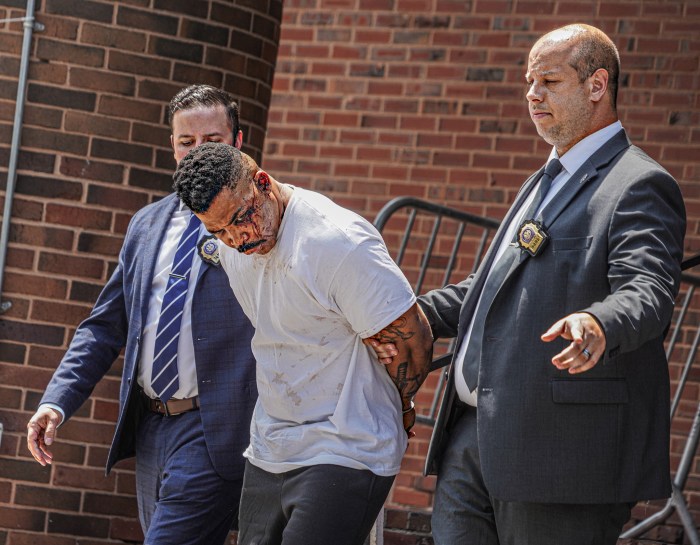The new musical “From Here” now Off-Broadway is at heart earnest and well-meaning. It was inspired by the Pulse Nightclub shooting in Orlando. On June 12, 2016, Pulse, a gay club, was attacked by a lone gunman with automatic weapons on Latin-themed night. The shooting took 49 lives, and traumatized Orlando and the nation. At the time, it was the deadliest mass shooting in modern U.S history — tragically topped a year later by the shootings in Las Vegas.
Good intentions, however, seldom make good theater, and that is the unfortunate case here. The story of “From Here” concerns a group of close friends in Orlando and their lives before and in the immediate aftermath of the tragedy. None of the characters were involved or even there, and by own admission they were only marginally acquainted with any of the victims.
In fact, it’s only in the last 20 minutes or so of the show that the tragedy figures in the story. The foregoing plot centers on Daniel, a 34-year-old man living the gay life in Orlando and is being fabulous as he tries to resolve his conflict with his mother over his father’s abandonment of the family, ostensibly because Daniel was gay — apparently 26 years ago. Meanwhile, Daniel’s partner of seven years arbitrarily leaves him, while Daniel is dismissive of another guy who is besotted with Daniel. The bestie girlfriend is a cabaret performer named Jordan, and there’s a gaggle of gays who, for some reason, get together for “gayme night,” and get drunk. In the midst of these stultifying events, the characters appear to be in competition to see who can be the most superficial. Book writer Donald Rupe (who also did the music and lyrics — and directed) hasn’t given any of them an iota of depth or complexity; they are tired, dated stereotypes. The story is also told out of Daniel’s memory; at least that’s how it appears. The disjointed structure and episodic scenes chronicle isolated events don’t build to anything, and only seem to convey how selfish and unpleasant these people are.
Given all of this, when the nightclub shooting happens, it comes out of the blue, and the piece lurches into something else entirely. For some unexplained reason the entire cast gathers at Daniel’s apartment. The penultimate scene of the show is nothing more than an extended group therapy session in which the characters talk about their feelings. Suddenly it feels like sensitivity training in a church basement. Giving Rupe the benefit of the doubt, perhaps the intention is to show how bitchy, self-involved queens are suddenly transformed into caring people by tragedy. It doesn’t work.
Moreover, serious questions remain. Why are we watching this particular group of people? Who are they to appropriate a tragedy they, thankfully, escaped? It feels manipulative, inauthentic, and disconnected from the actual tragedy. Thus, the supposed moral of the story that tragedy should make us appreciate the people in our lives, set aside our petty differences, and love one another rings hollow. As a piece of drama, “From Here” cheats the audience of a catharsis, presuming their horror at the Pulse shooting to drive the emotional impact, rather than developing characters through whom we feel the tragedy.
Rupe’s pop-infused score and lyrics are fairly average. Many of the songs make no dramatic sense, such as one called “Gayme Night,” where the characters mostly move aimlessly around the stage miming playing board games. (Like most of Rupe’s direction this is unfocused and random.) Jordan’s cabaret song, “It’s Good to be Gay,” is cringe-inducing, not just because it sounds like a sitcom theme from the 1970s, but because the last thing musical theater needs is another paean to how glam “the gays” are, while being not-so-subtly demeaning.
The saving grace of the production is the talented cast. It’s clear that they are fully invested in their performances, and there are some exceptional voices. In particular, Becca Southworth as Becca, Daniel’s mother, Omar Cardona as Ricky, the boy smitten with Daniel, and ensemble members Devin Skorupski and Kyle Ashe Wilkinson, give the music its best possible performance. Blake Aburn as Daniel is charming but ultimately disappointing, but that’s more because the book never lets Daniel be much more than generic.
The last scene of the show could have been written by the Orlando Tourist Board. It catalogs theme parks and other attractions. A New York audience can’t miss the irony of promoting Florida as a destination in 2024 in light of current politics and recent warnings about the safety of LGBTQ travelers to the state from the Human Rights Campaign and Equality Florida. More importantly, though, this, like the rest of the show, it doesn’t make dramatic sense and is designed to trigger audience actions rather than substantive drama. Unfortunately, it misfires.
“From Here” | Pershing Square Signature Center | 480 West 42nd Street|Tues, Weds, Fri, Sun 7:30 p.m.; Sat 8 p.m.; Weds, Sat 2 p.m. | $64-$97 | fromhere.com | 1 hour, 45 mins, no intermission

